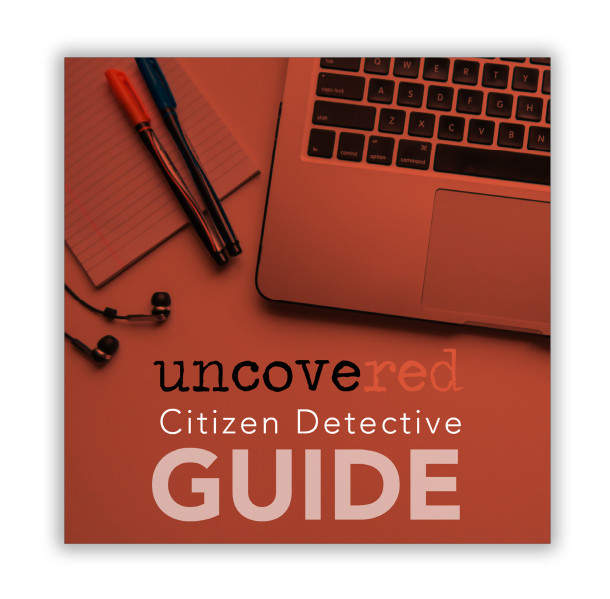Whether you’re researching a cold case from several decades ago, the background of a community anchor institution, or identifying the property of your relatives, you may decide to start digging through court and property records as your next logical step.
And with public records being, well, public, there’s a good chance you can get closer to the answers you’re looking for by requesting to look through them.
But you will have to do a bit of work in advance to determine which court records or property records you need to investigate. Where you start your search depends upon numerous factors, including the timeline of your particular incident, the location, how much information you have and which court branch handled the case.

First, you should be able to fairly quickly determine if it was a federal court case. In general, federal courts handle cases that involve bankruptcies, violations of the U.S. Constitution or federal law, and crimes on federal land. In this small percentage of cases, you can register for a PACER account. With PACER, which stands for Public Access to Court Electronic Records, you can get digital access to most of these cases dating after late 2004. Sensitive information, including social security numbers, may be redacted from the documents you’re researching.
Even if your cold case or murder investigation is at the federal level, you will need to search the records of the local U.S. district court that handled the case. Once you find that information, i.e. the court that handled a federal murder case, you can check to see if they have electronic records that you can access or if you will need to make a request for the public records in person.
A mixed bag: Taking your research to the local courts
As with most things handled by states and, subsequently, counties, procedures will vary depending upon whether you’re taking your research to Utah, New York, Georgia, Florida, West Virginia, California … or any of the other 44 U.S. states or the District of Columbia.
Some states may have dedicated more funding to digitize court information online. In that case, you may find that you can easily access certain types of information — or at least check the court website to find out how you can find what you’re looking for. You will also find that some courts charge a fee to obtain information, whether you’re accessing it online or in person. If that information isn’t readily available on the website, call to find out how to go about getting the material you need. It’s your public right.
In some rare cases, you can expect that some court records won’t be made available, such as with juvenile court records that are sealed after a person becomes an adult.
If a court employee doesn’t provide you access to records for no apparent reason, you can appeal, citing Public Records laws throughout the nation (every state has them) that allow members of the public to search these documents.
Inside a courthouse
When you get to the courthouse, don’t be surprised by how busy it may be. In recent years, more and more people are researching their family history, and courthouses can provide a significant amount of information about their ancestors in decades-old records.
If you want all the information you can possibly find about a particular property, a parcel of land or the boundaries of land ownership, your search will happen in the Recorder’s Office, in the county where the property is located. Property records provide information about legal ownership of a property, if a lien is currently against the property, along with whether the property is actively in foreclosure.
But, perhaps, you’re not digging for genealogy or property information. Let’s say you are suspicious of someone. Maybe a person who seems to be hiding something. In that case, you may decide to go sleuthing to find out if they have a criminal history.
To answer that question, your search will lead you to court records.
Each year, tens of thousands or even hundreds of thousands of cases could be filed in an average county court system. But don’t be overwhelmed by that staggering number. A huge percentage of those cases range from bankruptcy and civil claims to adoptions.
Here’s a rundown of things you should know about researching criminal records.
- A statewide criminal record check is offered in 24 states, including Texas. Florida, Colorado and Maine. Ask courthouse employees if this is available in your state.
- Unless a judge has ruled that specific aspects remain confidential, the full court records are available to the public.
- To conduct research about a federal criminal court case, visit the clerk’s office in the county where the case was filed. To rule out whether your “suspect” might have criminal proceedings in federal court, use the PACER system to search for their name.
- Because the public has access to all legal proceedings, the public also has access to all records of the proceeding. Check your state’s website for instructions pertaining to how to order court transcripts.
- You also have a right to see any papers filed during a trial by both the prosecutor as well as the defense attorney. Audio and videotapes of hearings, appearances and closing arguments are also accessible.
- During your search, you might see the term Spent Convictions. This term pertains to the Rehabilitation of Offenders Act 1974. Basically, it means previous crimes have been removed from a person’s record once time has been served. However, previous charges remain admissible in current criminal proceedings. This information is also available to you during a basic criminal record check.
- Criminal cases use two names for filing. The first name refers to the person taking action. The V between the two names is a Latin abbreviation for the word versus. The second name is the one you’re looking for. So if you’re digging around to find out if your “suspect” has a criminal history, you’re looking for a record that might read, State of Florida v [Fill in “suspect’s” name].
- Access to all known aliases and former residences (outside the state where the “suspect” currently resides) are as important to your detective work as the “suspect’s” birthdate and birthplace. So if your first sleuthing experience is incomplete, don’t give up. It’s possible that the “suspect” has an alias name. Also, keep in mind that a middle name can help you distinguish between common names in your research.
No matter where your search takes you, it’s important to keep in mind that you have a right to access court records that can assist in your investigation.

